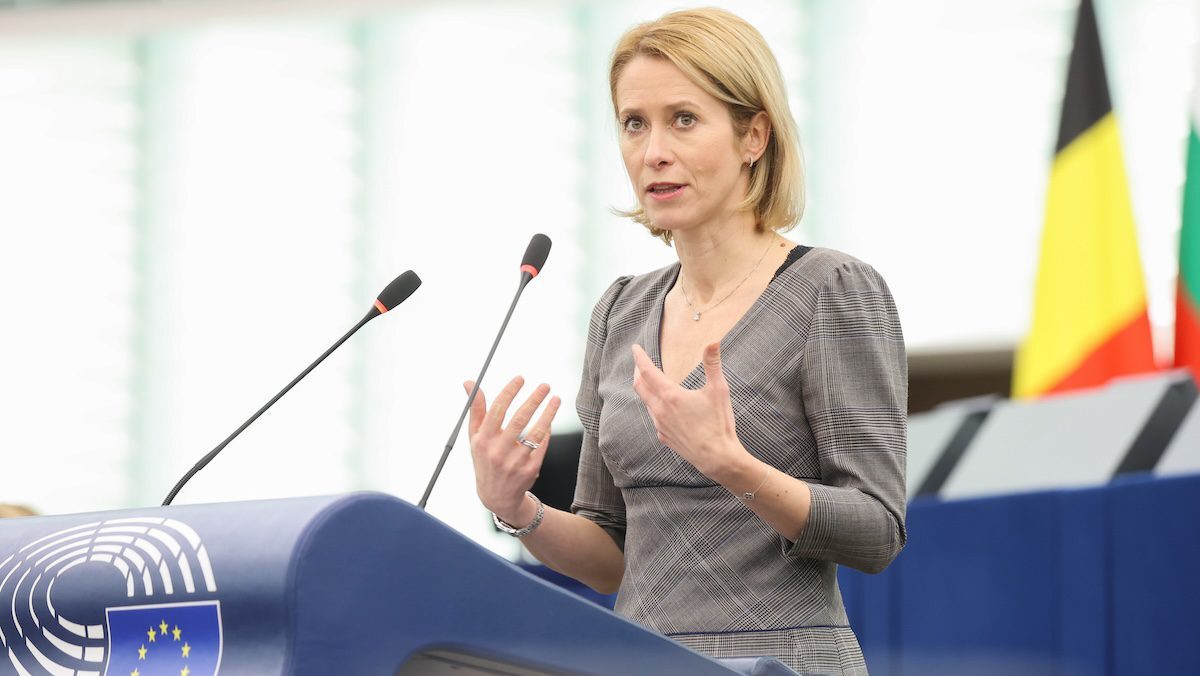
Kaja Kallas, the EU’s High Representative for Foreign Affairs and Security, addressing the European Parliament on Tuesday, December 17th.
Photo: Alain Rolland © European Union 2024 – Source: EP
The European Union will soon establish formal dialogue with Syria’s new Islamist leadership and reopen its diplomatic delegation in the country, the bloc’s foreign policy chief Kaja Kallas and Commission President Ursula von der Leyen announced on Tuesday, December 18th.
The move follows announcements from several Western nations, including Germany, Britain, and the United States, to reestablish diplomatic ties with Damascus after the fall of the Assad regime.
The EU delegation in Syria—essentially serving as the bloc’s embassy—never officially closed, but the dialogue has been suspended with no accredited ambassador in Damascus during the civil war that started in 2011.
“We want this delegation to be fully operational again,” Kallas, a former Estonian prime minister said in the European Parliament on Tuesday. She added that she had already instructed the delegation to head to Damascus on Monday and to establish contact with all the main rebel factions, including the leading Hayat Tahrir al-Sham (HTS).
HTS—which grew out of the al-Nusra Front, an al-Qaeda offshoot—has been designated as a terrorist organization by the UN Security Council since 2018. However, since it spearheaded the effort to topple the Assad regime and is now the dominant faction leading the country, the UN is already considering delisting HTS in order to engage with it more freely in the future.
“As far as one can tell, they have acted prudently so far,” a German spokesman explained why Berlin was among the first capitals to establish links with HTS.
Stability in the region is the primary interest of the EU right now, as Brussels fears that a potential collapse of the fragile status quo might trigger another civil war with a new refugee crisis similar in proportions to 2015-2016.
Furthermore, propping up the HTS’ Sunni leadership might be the only way to prevent others, such as Iran, Russia, or even Daesh (ISIS) from swooping in and trying to fill the vacuum left by Assad.
“The lack of predictability demands utmost caution,” von der Leyen said on the same day while visiting Turkish President Recep Tayyip Erdoğan in Ankara. “The risk of a Daesh (Islamic State) resurgence, particularly in eastern Syria, is real. We cannot let this happen,” the Commission chief said.
Another goal is to make sure Russia doesn’t regain its foothold in the country. On Monday, Kallas said one of the main requests the EU will pursue from the HTS leadership is the closure of the remaining Russian military bases in Syria.
“Many foreign ministers took this up to say that, you know, it should be a condition for the new leadership that they also get rid of the Russian influence there because it is a base where they also conduct their activities toward Africa and southern neighbors,” Kallas said. “So we will raise this issue with the leadership when we have the meetings.”
We can’t leave a vacuum in Syria.
— Kaja Kallas (@kajakallas) December 17, 2024
The EU must be present.
We have already started with a process to engage cautiously with the new leadership and the civil society.
We will also reopen the EU delegation in Syria to have constructive engagement and get input from the ground. pic.twitter.com/QjEK4QE1qw
